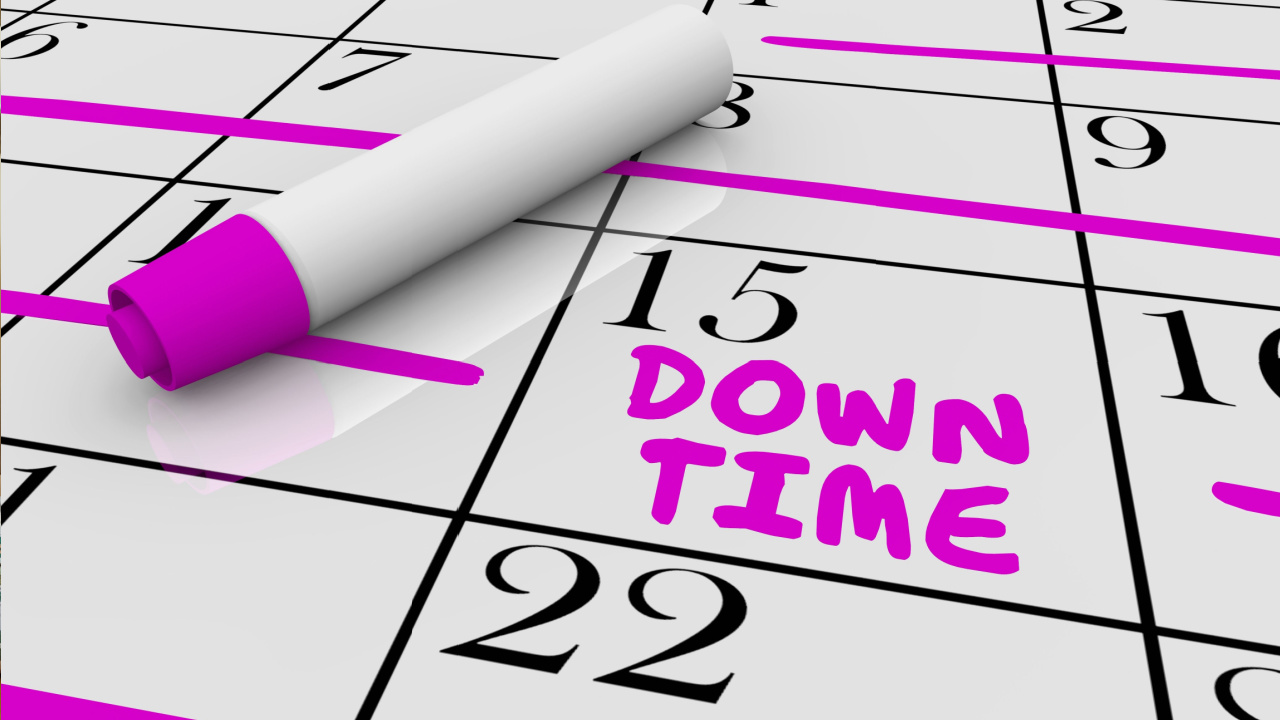
Remember, work isn’t solely for financial gain—it should materially and spiritually fulfill you. Discontent in your job seeps into other areas of life. Find work that excites you, making waking up every morning an anticipation, not a dread.
I quit my career as a mental health nurse to better protect my own mental health and decided to pursue writing. Yes, there have been plenty of ups and downs, but overall, I’m much happier and healthier.
2. Make Your Health a Priority

Your well-being is the foundation of a balanced life. Incorporating simple routines, such as regular exercise or mindfulness practices, can significantly impact your stress levels and productivity. Physical activity releases mood-enhancing chemicals, reinforcing the importance of keeping your body and mind in shape.
3. Establish Boundaries with Your Employer

It’s essential to advocate for yourself when work demands become overwhelming. Assertiveness in setting boundaries ensures that your workload remains manageable, allowing you to dedicate time to other important areas of your life.
4. Plan Your Downtime

Vacations and breaks are vital for rejuvenation. By scheduling time away from work, you signal to yourself and others that your well-being is a priority. This planned downtime is crucial for maintaining balance and avoiding burnout.
5. Engage in Open Communication with Loved Ones

Don’t hesitate to seek support from your partner or family. Sharing your challenges can lighten your emotional load and strengthen your relationships, providing a solid foundation to tackle life’s demands.
6. Embrace Imperfection

Pursuing perfection in every aspect of life is a recipe for disappointment. Accept that you can’t excel in every role at all times. Prioritizing and giving yourself the grace to let some things slide can lead to a more fulfilling existence.
7. Tackle Daily Goals with Realism

Embracing each day with achievable objectives can significantly boost our sense of accomplishment and control. By setting realistic tasks and deadlines, we minimize stress and enhance productivity. Start with a well-organized “to-do” list, focusing on critical tasks while eliminating or delegating the non-essential. But be realistic.
I’m neurodivergent, so I tend to go crazy on my to-do list and have to work hard at setting a realistic number of tasks based on available time and task complexity.
8. Choose Activities That Fuel You

The fast track to burnout is overcommitting—taking on more than we can handle. I am really bad at this one. Learning to say no is a powerful tool in maintaining our mental health and ensuring we don’t fall into the trap of overextension, which can lead to frustration and potentially even depression.
9. Maximize Productivity, Minimize Busywork

Breaking down large projects into smaller, manageable tasks can make daunting work feel more approachable. Celebrate small victories with appropriate breaks or rewards to maintain motivation. If certain routines feel redundant or unnecessary, communicate with your superior for potential optimizations.
Efficient work leads to more quality time for personal life and relationships.
10. Seek Flexible Work Arrangements

The modern workplace increasingly acknowledges the value of flexible schedules and remote work options. If your job permits, negotiating a flexible schedule or occasional remote work days can significantly improve your work-life harmony, allowing for a more personalized and manageable routine.
11. Embrace Regular Breaks

Short breaks during work hours are not just allowed; they’re encouraged. These pauses help refresh your mind, improving decision-making and stress management. A brief detachment from work tasks can spur creativity and a renewed focus, making you more effective in your role.
12. Incorporate Music into Your Workday

Listening to your favorite tunes can boost concentration, alleviate stress, and spark creativity. Research supports the many benefits of music, including lower blood pressure and enhanced mood. If permissible, headphones can transform your productivity and make your workday more enjoyable.
13. Practice Open Communication

Honesty with colleagues and managers about your limits can foster a supportive work environment. Propose practical solutions when faced with challenges, and be open to others’ perspectives. Effective communication can significantly reduce stress and lead to more harmonious workplace relationships.
14. Separate Work and Home Life

Creating a distinct boundary between your professional and personal life is crucial for mental well-being. If you work from home, establish a dedicated workspace and set specific work hours to help maintain this separation. When work time ends, physically step away from this space to signal to your brain that it’s time to switch modes. This physical and mental separation is key to preventing work stress from infiltrating your personal life and vice versa.
15. Regularly Detach from Digital Devices

The convenience of modern technology can sometimes tether us to work, making it challenging to truly unwind. Establish tech-free zones or times at home to encourage relaxation and connection with loved ones. Even if your job demands high availability, designate periods where you can safely disconnect, ensuring you can recharge and maintain your personal relationships without work interruptions.
16. Cultivate a Strong Support Network

The importance of having a circle of friends and family for support cannot be overstated. These relationships offer a safety net during stressful times and contribute significantly to your overall happiness and resilience. Whether it’s sharing concerns over coffee or seeking advice during tough times, a robust support system can significantly impact your ability to navigate work-life challenges.
17. Keep Active for Mental and Physical Wellness

Exercise is about more than physical health. It’s a powerful stress reliever that can improve your mood and enhance your ability to handle work pressures. Find physical activities that you enjoy, whether it’s yoga, running, or team sports, and integrate them into your weekly routine. Regular physical activity can boost your energy levels, improve sleep, and provide a productive outlet for releasing tension.
I spend a lot of time walking my dogs, working in my garden, and swimming.
18. Nourish Your Body Mindfully

The fuel you give your body directly impacts your energy levels, mood, and overall health. Aim for a balanced diet rich in nutrients to support your body’s needs, especially during busy periods. Eating well can improve concentration, productivity, and resilience against stress, making it easier to maintain balance between work demands and personal life.
19. Prioritize Quality Sleep

Never underestimate the power of a good night’s sleep for mental and physical health. Establish a calming bedtime routine and strive for 7-9 hours of sleep each night. Quality rest can enhance your problem-solving skills, creativity, and capacity for handling stress, making it easier to achieve work-life harmony.
20. Engage in Hobbies and Personal Interests

Your hobbies and interests provide a vital escape from work stress and an opportunity for self-expression and relaxation. Dedicate time each week to activities that bring you joy, whether it’s reading, gardening, or creative arts. These pursuits enrich your life and remind you of your identity beyond your professional role.
21. Seek Professional Help When Overwhelmed

If work-life balance feels unattainable and stress becomes unmanageable, it may be time to seek help from a mental health professional. Therapy or counseling can provide strategies for coping with stress, managing your time more effectively, and improving your overall well-being. Remember, seeking help is a sign of strength and a step toward reclaiming your happiness and health.
22. Learn to Delegate and Say No

One of the keys to work-life balance is understanding that you don’t have to do everything yourself. Whether at work or in your personal life, learn to delegate tasks to others. This lightens your load and empowers those around you. Additionally, become comfortable with saying no to requests that overextend your time or energy. Saying no allows you to focus on what truly matters and keeps you from becoming overwhelmed.
23. Practice Mindfulness and Meditation

Incorporating mindfulness and meditation into your daily routine can significantly improve your ability to focus, reduce stress, and enhance overall well-being. Even just a few minutes a day can make a difference. These practices help center your thoughts, bringing you back to the present moment and reducing the noise of a busy life. This can be especially helpful in managing work-related stress and maintaining a clear boundary between work and personal life.
24. Plan for Leisure and Downtime

Just as you would schedule a meeting or a work project, scheduling leisure activities and downtime is important. Having these moments to look forward to can motivate you through challenging times and ensure you’re allocating time for rest and enjoyment. Whether it’s a weekend getaway, an evening with friends, or just some quiet time with a book, planning for leisure is a critical component of a balanced life.
24 Important Money Moves to Make Before a Crisis

We live in a world where our financial stability can suddenly take a hit, especially in times of crisis. These unexpected events can shake our finances and livelihood, whether it’s losing a job out of the blue, facing a natural disaster, or dealing with a global pandemic. Preparing and making wise money moves before the storm is the key to getting through these challenging times. We’ll look at some of the critical steps you can take now to safeguard your finances and shield yourself from future crises. So, let’s dive in together and start planning for a more financially secure future!
12 Money Mistakes That Can Leave You Vulnerable in a Crisis

In times of uncertainty, financial stability is more crucial than ever. While prepping for physical emergencies is vital, don’t overlook financial prepping. Avoiding these common money mistakes can help make sure you’re in a stronger position to weather any storm.
38 Things Every Prepper Should Stockpile That Aren’t Water, Food, or Weapons

This list extends beyond the basic survival trio of water, food, and weapons. It’s a given that we need to stock up on water, food, and a way to defend ourselves and what we have. But what other things will you need in a survival situation? None of us truly knows what TEOTWAWKI will really look like, although most of us have theories we think most likely. But whatever the situation is, there are certain supplies that it just makes sense to have on hand, aside from the obvious trio I mentioned above.

